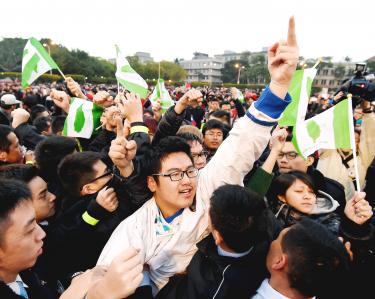The period from former president Lee Teng-hui’s (李登輝) administration from 1988 to 2000 through former president Chen Shui-bian’s (陳水扁) two terms from 2000 to 2008 and President Ma Ying-jeou’s (馬英九) rule since 2008 has reflected political development in the post-president Chiang Ching-kuo (蔣經國) era: The shaky path toward development amid the struggle between Taiwanese localization and Chinese colonialism.
|
|||
|
|
|||
| Page 858 of 1529 |
Newsflash
|
Taiwan Solidarity Union Legislator Lin Shih-chia (林世嘉) and Democratic Progressive Party Legislator Lin Chia-lung (林佳龍) yesterday proposed that the nation’s capital be relocated outside the “evacuation zone” in the 50km radius around operational nuclear power plants. “Of the 211 nuclear power plants operating around the world, there are only six plants that have more than 3 million people living within 30km of them, and two of them are the Jinshan Nuclear Power Plant in New Taipei City’s (新北市) Shihmen District (石門) and the Guosheng Nuclear Power Plant in the same city’s Wanli District (萬里),” Lin Shih-chia said. |












